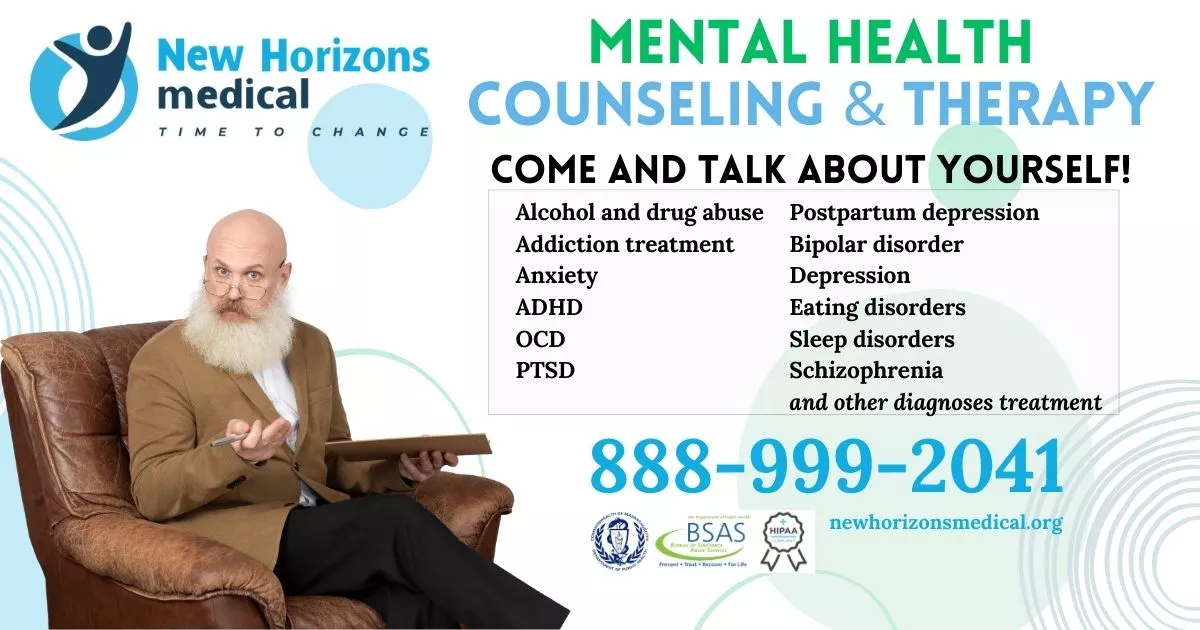Unlocking the Tricks of Mental Wellness: An Overview of Counseling and Treatment Alternatives
Psychological health is a complicated and important facet of total wellness. Numerous therapy and therapy options exist to attend to various psychological challenges. Each technique provides unique advantages and approaches tailored to private demands. Understanding these choices is necessary for anybody seeking to improve their psychological wellness. Mental Health Resources. What factors should one take into consideration when checking out these methods? The solution might expose a course to a much healthier psychological state
Comprehending Mental Wellness and Its Importance
Mental wellness includes the emotional, mental, and social well-being of individuals, significantly influencing exactly how they think, feel, and act. Its value can not be overstated, as it affects every aspect of life, including connections, work performance, and total lifestyle. People with great mental health often tend to deal with tension extra effectively, maintain much healthier relationships, and make educated decisions. Alternatively, bad psychological wellness can bring about emotional distress, impaired functioning, and different mental disorders, which may require expert treatment. Understanding mental health and wellness is necessary for acknowledging the indications of distress and the need for assistance. Awareness additionally advertises compassion and decreases preconception, encouraging individuals to look for assistance when needed. By focusing on mental wellness, neighborhoods can cultivate settings that support emotional wellness, inevitably bring about much healthier, more resilient individuals. This structure acts as an essential step toward reliable mental health counseling and therapy choices.
Kinds of Therapy Methods
Therapy strategies vary widely, each customized to meet the unique needs of people seeking assistance. Amongst the most usual kinds are cognitive-behavioral treatment (CBT), which concentrates on determining and transforming negative idea patterns, and person-centered treatment, which stresses compassion and acceptance. Psychodynamic therapy checks out previous experiences and unconscious processes to comprehend current actions, while solution-focused quick treatment aims to identify options instead of examine problems.Additionally, family members treatment addresses relational characteristics and interaction within family members, cultivating healthier communications. Team therapy gives a public area for individuals to share experiences and sustain one another. Various other techniques include existential therapy, which motivates individuals to find definition and objective, and art or songs therapy, which makes use of creative expression as a healing tool. Each strategy supplies distinct techniques and approaches, enabling clients to locate the most suitable method for their personal growth and recovery journeys.
Checking Out Various Therapy Methods
In the domain of psychological health and wellness counseling, different therapy modalities supply distinct techniques to therapy. Cognitive Behavior Therapy highlights the link between actions and thoughts, while Psychodynamic Therapy checks out subconscious impacts on psychological health. Furthermore, Mindfulness-Based Techniques promote present-moment recognition as a way to improve psychological guideline and total mental health and wellness.
Cognitive Behavioral Therapy
Cognitive Behavioral Treatment (CBT) stands apart as one of the most widely practiced and looked into techniques in mental health and wellness treatment. This technique concentrates on the affiliation between feelings, ideas, and actions, highlighting that altering unfavorable thought patterns can bring about enhanced psychological wellness and behavioral modifications. CBT is structured, usually involving a minimal number of sessions, and aims to furnish people with sensible abilities to manage their symptoms. It works for a variety of conditions, consisting of anxiousness problems, depression, and post-traumatic stress condition. By making use of techniques such as cognitive restructuring and direct exposure therapy, CBT fosters strength and encourages clients to challenge obstacles head-on, making it a valuable choice in the landscape of psychological health and wellness treatments.
Psychodynamic Treatment Strategies
Psychodynamic therapy strategies use a deep expedition of the unconscious mind and its influence on actions and psychological health. Rooted in Freudian theory, these techniques highlight the importance of very early youth experiences and subconscious conflicts. Through methods such as complimentary organization, desire evaluation, and transference, individuals obtain insight into their thoughts and sensations, fostering self-awareness and understanding. This restorative method encourages clients to discover repressed feelings and unsettled issues, which can be essential in addressing existing psychological difficulties. By taking a look at the interaction in between previous experiences and present behaviors, psychodynamic therapy intends to promote psychological recovery and personal development. Ultimately, it provides a structure for individuals to discover complex internal characteristics that influence their psychological health.

Mindfulness-Based Strategies
While conventional therapies commonly concentrate on past experiences, mindfulness-based strategies focus on present-moment recognition as a path to psychological wellness. These approaches, including mindfulness-based cognitive treatment (MBCT) and mindfulness-based stress and anxiety reduction (MBSR), urge people to involve fully with their ideas and feelings without judgment. Experts discover to observe their frame of minds, cultivating a better understanding of emotional triggers and responses. This technique not only eases symptoms of anxiety and clinical depression however also boosts general mental strength. By integrating mindfulness workouts, such as meditation and deep breathing, clients grow a sense of tranquility and quality. Ultimately, mindfulness-based strategies encourage people to browse life's obstacles with increased awareness and acceptance, promoting a healthier connection with their feelings and ideas.
The Role of a Specialist or Counselor
An experienced specialist or therapist plays a crucial function in supporting individuals via their mental wellness journeys. They offer a risk-free, non-judgmental room where customers can share their thoughts and feelings openly. Couples Therapy. By using numerous therapeutic methods customized per individual's requirements, therapists help customers explore underlying problems that might add to their mental health and wellness challenges.Therapists supply assistance and tools to deal with stress and anxiety, stress and anxiety, anxiety, and other psychological difficulties. Their training equips them to recognize patterns in actions and assumed processes, assisting in insights that lead to personal development. They also foster a strong therapeutic alliance, which is important for effective outcomes.Moreover, therapists continue to be dedicated to discretion and honest requirements, making sure a relying on environment. Eventually, the duty of a specialist or therapist is to empower people, motivating them to create strength and much healthier coping strategies while steering via life's complexities
Just how to Choose the Right Therapy or Therapy Alternative
Selecting the right counseling or therapy choice starts with examining private needs. It is necessary to comprehend personal obstacles and goals prior to discovering numerous therapy designs. This foundational step can significantly influence go to this website the efficiency of the chosen strategy.
Examine Your Demands

Just how can people properly assess their psychological health requires when examining counseling or treatment alternatives? Initially, they ought to mirror on their emotional state and recognize certain problems, such as anxiety, stress and anxiety, or partnership obstacles. Journaling can be a useful device for tracking ideas and sensations with time. Furthermore, people may take advantage of seeking feedback from trusted friends or relative concerning viewed changes in behavior or mood. It is also practical to examine personal objectives for treatment, such as enhancing coping skills or gaining insight right into individual patterns. Finally, investigating various therapy methods and their suitability for specific requirements can aid in making an educated option. Ultimately, self-awareness plays an essential function in choosing the appropriate course for mental wellness support.
Discover Treatment Styles
While passing through the varied landscape of treatment options, people need to take into consideration different designs of counseling to locate the most effective suitable for their special needs. Cognitive Behavior Treatment (CBT) concentrates on altering unfavorable idea patterns, while Psychodynamic Treatment checks out unconscious processes and past experiences. Humanistic techniques emphasize personal development and self-actualization, cultivating an encouraging atmosphere. In addition, mindfulness-based therapies grow present-moment awareness, aiding psychological law. For those looking for framework, Solution-Focused Quick Treatment targets particular objectives and remedies. Team treatment this content offers a communal setting for common experiences and support. Inevitably, people ought to assess their preferences, convenience degrees, and details challenges, ensuring they pick a healing style that resonates with their personal trip toward mental well-being.
Getting Rid Of Obstacles to Looking For Help

The Advantages of Therapy and Treatment for Psychological Health
Seeking aid for psychological wellness challenges can cause substantial renovations in overall well-being. Counseling and treatment give people with a secure area to explore their sensations and thoughts, fostering self-awareness and individual development. These expert services furnish customers with coping techniques and analytical skills tailored to their unique situations.Moreover, treatment can minimize signs of anxiousness, depression, and other psychological wellness problems, enhancing emotional strength. Regular sessions promote responsibility and encourage people to establish and accomplish individual goals. Via numerous restorative techniques, such as cognitive-behavioral therapy or mindfulness practices, customers discover to reframe negative ideas and establish healthier behaviors.Additionally, the healing relationship itself can be a source of support, helping to battle seclusion and loneliness. Overall, engaging in therapy and treatment is a positive action toward accomplishing mental health, allowing people to lead more meeting lives.
Frequently Asked Inquiries
The Length Of Time Does Counseling or Treatment Generally Last?
The period of counseling or therapy differs significantly, often lasting from a couple of sessions to a number of months or years. Factors influencing this consist of the individual's certain needs, the sort of treatment, and therapeutic objectives.
What Should I Anticipate During My Initial Session?
Throughout the initial session, individuals can expect an intro, conversation of issues, and the specialist's approach. They may finish evaluations and develop objectives, cultivating a secure setting for open communication and building relationship.

Are There Any Risks Linked With Treatment?
Treatment can involve threats, such as psychological discomfort, vulnerability, or challenging unpleasant memories. While these difficulties might develop, they can also lead to personal growth and healing, making the restorative procedure facility yet possibly satisfying.
Exactly How Can I Inform if My Therapist Is a Great Fit?
Figuring out if a therapist is a good fit entails reviewing convenience, interaction style, and therapeutic strategy. Positive connection and progress in the direction of goals are signs of a suitable suit, necessary for effective psychological wellness assistance.
Will My Insurance Coverage Cover Therapy or Treatment Sessions?
Identifying insurance protection for therapy or therapy sessions usually needs company website calling the insurance coverage service provider directly. Policies differ substantially, so individuals should verify benefits, co-pays, and any type of needed pre-approvals prior to pursuing therapy solutions. Among the most typical kinds are cognitive-behavioral treatment (CBT), which concentrates on recognizing and altering negative idea patterns, and person-centered therapy, which highlights compassion and acceptance. Psychodynamic therapy checks out past experiences and unconscious procedures to comprehend existing habits, while solution-focused brief therapy aims to determine options instead than explore problems.Additionally, household treatment addresses relational characteristics and interaction within family members, cultivating much healthier interactions. Other approaches include existential treatment, which motivates individuals to find meaning and objective, and art or songs therapy, which makes use of creative expression as a therapeutic tool. Cognitive Behavior Treatment emphasizes the connection between habits and thoughts, while Psychodynamic Treatment discovers unconscious impacts on emotional well-being. Cognitive Behavioral Treatment (CBT) concentrates on changing unfavorable idea patterns, while Psychodynamic Treatment checks out past experiences and subconscious procedures.